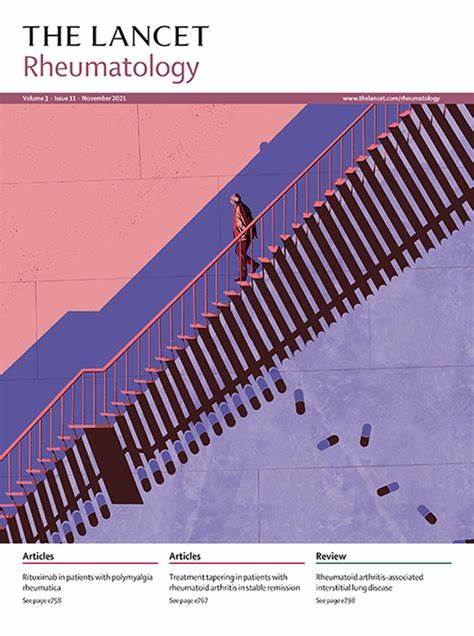Barriers to CAR T-cell therapy in rheumatology
IF 15
1区 医学
Q1 RHEUMATOLOGY
引用次数: 0
Abstract
Chimeric antigen receptor (CAR) T cells have recently shown remarkable promise in treating rheumatic diseases, including systemic lupus erythematosus (SLE), idiopathic inflammatory myopathies, and systemic sclerosis. Currently, there are 37 clinical trials registered for CAR T-cell therapy in rheumatic diseases and many more are being planned. Much of this enthusiasm is justifiable, but widespread adoption of CAR T-cell therapy in rheumatology faces several barriers. The trajectory of autoimmune diseases differs from malignancies and a surprisingly narrow population could be eligible for CAR T-cell therapy. Current CAR T-cell approaches rely on B-cell depletion, which has a mixed record of success for many diseases. The high cost of CAR T-cell therapy and potential safety concerns, such as cytokine release syndrome and long-term infection risks, also pose substantial challenges. Moving forward, more targeted CAR T-cell approaches, such as antigen-specific chimeric autoantibody receptors or chimeric autoantigen T-cell receptors, could offer greater efficacy and safety in treating rheumatic diseases.
风湿病学 CAR T 细胞疗法的障碍。
嵌合抗原受体(CAR)T 细胞最近在治疗风湿性疾病(包括系统性红斑狼疮(SLE)、特发性炎症性肌病和系统性硬化症)方面显示出了显著的前景。目前,已有 37 项 CAR T 细胞疗法在风湿病领域的临床试验注册,还有更多的临床试验正在计划中。这种热情在很大程度上是合理的,但在风湿病学中广泛采用 CAR T 细胞疗法面临着一些障碍。自身免疫性疾病的发展轨迹不同于恶性肿瘤,有资格接受 CAR T 细胞疗法的人群少得惊人。目前的 CAR T 细胞疗法依赖于 B 细胞耗竭,而这种疗法在许多疾病上的成功率参差不齐。CAR T 细胞疗法的高成本和潜在的安全问题,如细胞因子释放综合征和长期感染风险,也构成了巨大的挑战。展望未来,更具针对性的 CAR T 细胞疗法,如抗原特异性嵌合自身抗体受体或嵌合自身抗原 T 细胞受体,可为治疗风湿性疾病提供更高的疗效和安全性。
本文章由计算机程序翻译,如有差异,请以英文原文为准。
求助全文
约1分钟内获得全文
求助全文
来源期刊

Lancet Rheumatology
RHEUMATOLOGY-
CiteScore
34.70
自引率
3.10%
发文量
279
期刊介绍:
The Lancet Rheumatology, an independent journal, is dedicated to publishing content relevant to rheumatology specialists worldwide. It focuses on studies that advance clinical practice, challenge existing norms, and advocate for changes in health policy. The journal covers clinical research, particularly clinical trials, expert reviews, and thought-provoking commentary on the diagnosis, classification, management, and prevention of rheumatic diseases, including arthritis, musculoskeletal disorders, connective tissue diseases, and immune system disorders. Additionally, it publishes high-quality translational studies supported by robust clinical data, prioritizing those that identify potential new therapeutic targets, advance precision medicine efforts, or directly contribute to future clinical trials.
With its strong clinical orientation, The Lancet Rheumatology serves as an independent voice for the rheumatology community, advocating strongly for the enhancement of patients' lives affected by rheumatic diseases worldwide.
 求助内容:
求助内容: 应助结果提醒方式:
应助结果提醒方式:


